Review: I Don’t Need You to Love Me
Blitz Bazawule’s ‘The Color Purple’ leads with glitz over gloom
The Yearning Rating: ✰✰✰½
Romance: ✰✰✰
Sex: ✰✰
Storytelling: ✰✰✰
Performance: ✰✰✰✰✰
Yearning: ✰✰✰✰✰
Welcome to a brave new year, Yearners! We’re happy to be back and have some fun things in store for the months ahead. Make sure you’re subscribed to get the latest <3
Spoilers ahead!
Written by Ali Romig
Let’s talk about stage musicals versus movie musicals. It may not seem like it, but these are two incredibly distinct genres. To some, all musicals get an unfair rap for being overly-dramatized, cheesy, or superficial. (FYI, musical theater lover here, this will be a defense!) But I think when considering the impact of a musical, it is essential to take into account the format. Stage musicals may be flashy—full of spontaneous song and dance as a rule—but as they are performed live, they also offer a unique kind of intimacy between performer and audience. When watching a musical on stage, we’re grounded in that exact reality—we hear every hitch of the voice, see sweat bead on the performers’ foreheads, and can even follow the trajectory of a fallen tear. Every moment, we are confronted with the immediacy of the characters' humanity.
Movie musicals, on the other hand, have much larger scale, which can lead to grander, more polished productions that become accessible to far more people (all good things!). But these same changes can also mean a greater distance between the audience and the authenticity of the content. This distinction became clear to me while watching Blitz Bazawule’s new adaptation of The Color Purple—an exceptionally impressive movie musical that is more than able to stand on its own, but unfortunately falls short when compared to the source material and its previous stage musical adaptation.
Based on Alice Walker’s Pulitzer Prize–winning 1982 novel of the same name, Bazawule’s The Color Purple is the latest in a long line of remakes—the 1985 movie starring Whoopi Goldberg and Oprah, the 2005 Broadway musical, and the 2015 Broadway revival. At the center of each of these iterations is Celie, a Black woman living in Jim Crow Georgia during the first half of the 20th century. We follow Celie from childhood to adulthood and eventually older age, witnessing as she endures cruelty after cruelty (most notably at the hands of her father, Alphonso, and husband, Mister), but also love and self-actualization. After questioning if god has forgotten about her, it is the women in her community—her estranged sister, Nettie; her strong-willed friend Sofia; her lover, Shug Avery—who restore her faith in her god and herself.
While it’s billed as an adaptation of the musical, Bazawule’s film is really a polished, hyperbolic amalgamation of all of its predecessors. The idea of glitzy, highly-produced dance breaks amongst themes of such brutality seems a bit dissonant. But I think the upbeat tone is actually one of the better choices Bazawule made. He very deliberately chooses to focus on the joy and solidarity of these Black women, an affirmation that no one is defined by the worst thing that has happened to them. The coexistence of evil and good was integral to Walker’s novel, so the jubilance of the film doesn’t feel disingenuous to me, especially when it centers the women.
One of the few times I do think that the “happily-ever-after” movie musical sheen works too hard is when Mister—who spends the majority of the movie abusing Celie—is basically fully redeemed by putting on a pair of shiny pants? Later in their lives, Mister (played by Coleman Domingo) makes amends with Celie and offers to buy a pair of rather ugly, rainbow-fabric pants from the store she now owns. Not only does this serve to unnecessarily absolve Mister, but it also simply takes you out of the narrative. There is no way these pants existed in 1947! As friend of The Yearning Kayla Lewis-Hue commented, “Those pants definitely have microplastics in them.”
The true strength of this new adaptation lies in its powerhouse performances, which anchor the film when some of its Big Studio-tendencies threaten to sweep it away. Reprising her role from the 2005 Broadway production, Fantasia Barrino effortlessly embodies the vulnerability and eventual quiet-surity of Celie. She infuses the film with a sense of raw understanding, and offers nuance to balance its highly stylized nature. Her rendition of “I’m Here,” which serves as the film's climax, is quite simply, breathtaking. I never thought anything would top Cynthia Erivo’s performance at the 2016 Tony Awards (which has maintained the top spot on my Youtube’s “most watched” list since 2017), but there’s an ease and lived-in quality to Fantasia’s rendition that absolutely knocked me sideways. The command her voice has lets the audience know she owns this role.
Though Fantasia’s Celie remains a strong central figure for the entirety of the film, it’s Danielle Brooks who, without a doubt, steals the show. As Sofia—the head-strong wife of Mister’s eldest son, Harpo—Brooks (who also played the part in the Broadway revival) is able to flex both her stage and screen experience. Her instincts and timing are just perfect. She knows exactly when to turn things up or turn things down, and does so with pinpoint accuracy—often setting or shifting the tone for an entire scene. Sofia is an incredible character regardless, but Brooks’ range takes her to another level, representing both the comedic and tragic parts of her with an equal amount of reverence.
If I were simply looking at Bazawule’s The Color Purple on its own, or even comparing it against other movie musicals, I’d laud it as extremely effective. But the reality of reviewing something as oft-revisited as The Color Purple is that we can see what’s been changed, amplified, and even overlooked. And unfortunately, the queer romance that was so visceral in Walker’s novel continues to slip through the cracks of its film adaptations.
It’ll probably come as no surprise that my first experience with The Color Purple was watching the stage musical. It was 2012 and I went to see the national tour in Washington, DC. I can still remember my shocked delight as I slowly caught onto the fact that I was witnessing a beautiful love story blossoming between Celie and sultry blues singer, Shug Avery. In the stage musical, when Shug first arrives on the scene, we know her only as Mister’s sometimes-mistress. While initially at odds, it isn’t long before Shug is protecting Celie from Mister’s abuse. Eventually, the two are singing love songs to each other against the bare backdrop of Shug’s room—the single bed on stage a prescient reminder of the explicitly sexual nature of their relationship.
Bazawule takes a lot of liberties when it comes to reimagining the musical, most notably cutting numerous songs. The most difficult cuts to reconcile with are the ones that inform or deepen the Celie / Shug romantic relationship. The love songs that remain are stylized so heavily that they’re almost completely removed from reality. For instance, “Dear God - Shug” finds Celie and Shug spinning around on a massive record-player, in a dream. Shug’s eyes remain closed the whole time, so that she’s effectively absent. And THE major love song, “What About Love,” is relegated to yet another fantasy sequence; this one finds the women on opposite ends of a wide stage, dressed opposingly in black and white. Foils, rather than lovers. They sing out into the ether, instead of to each other, and the song ends with a back-lit kiss before cutting away.
Another seismic change Bazawule makes is to cut Shug’s affair, which takes place in both the book and stage musical. In those versions, after living happily together in a relationship for years, Shug tells Celie she has fallen for a younger member of her band, and wants to go have one last fling with him. At first glance, cutting this point may seem like a happier choice for the two. But I’d argue that this change, combined with the overall vagueness of their relationship in the new film, doesn’t make their love story happier—just less considered. A departure or loss often brings a painful clarity—and Shug’s has Celie declaring that what they had together was committed, sexual, intimate. That it was love. Without this conflict, Bazawule leaves their roles in each other's lives largely undefined.
It’s supposed to be Shug’s exit that inspires Celie to sing “I’m Here,” an assertion of self-love in the face of yet another loss. Instead, Bazawule puts the song after a moment between Celie and Mister. This feels like a cop-out, and far less satisfying (not to mention, kind of dark-sided!). The lyrics, “I don’t need you to love me / I don’t need you to love,” just don’t hit as hard when sung about a man Celie happily divorced herself from years prior—and c’mon, did she ever love Mister??? The power of “I’m Here” is that it takes hard-earned strength to maintain one’s worth, even when the person who knew and loved you best chooses to walk away. I was looking forward to seeing Fantasia drive home that message, and I think anyone who is familiar with the song probably felt that shift acutely. And as a white woman, I can only begin to imagine how it feels to have such a foundational story of Black queer love downplayed and muddied. If you’d like to read more about how Bazawule’s handling of the Shug / Celie relationship affected viewers, I’d recommend the piece If Only “The Color Purple” Had Loved All of Us by Carmen Phillips or this article by Brooke Obie about the sanitization of Celie and Shug’s love story.
Bazawule’s The Color Purple is perfect to see in theaters, preferably with a big crowd who knows all the songs. It’s beautiful to look at, full of outstanding performances and vocals, and rich with history and community. But, this movie is also part of a larger story and legacy. I would recommend engaging with all of it in tandem to see what this version for “a new generation” has given us—and what it’s taken away.
The Color Purple is now in theaters—find tickets here!
The Elephant in the Werkroom
We’re back! Welcome to the segment where we recap the most recent episode of RPDR.
It’s Season 16, and we’re tired, so we’ll be giving you a rundown of the topline stuff. But leave a comment if we missed something!
Episode 1:
Am I the only one who is over the split premiere? I liked it in the beginning as a way to get to know the queens better, but now I find it halting. I’d prefer they just cut back to casting 12 queens and get on with things!
That photo challenge?! Heinous. The glaring Amazon product placement makes me wary of the season ahead.
I feel like Dawn is giving major Willow Pill vibes (who I adore) but I’m not sure I’m sold. I loved Dawn’s runway, but Ru was laughing SO HARD during her photo shoot, it felt like an obvious setup for “quirky, comedy queen”. And I don’t like being manipulated!
Q took the talent show for me (the camp!) but Sapphira was the rightful lip sync winner.


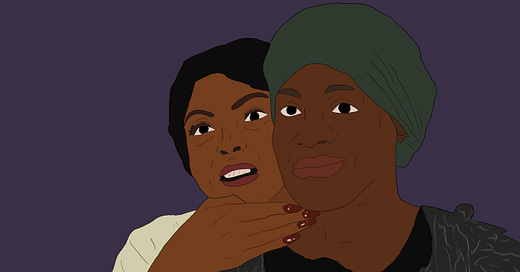



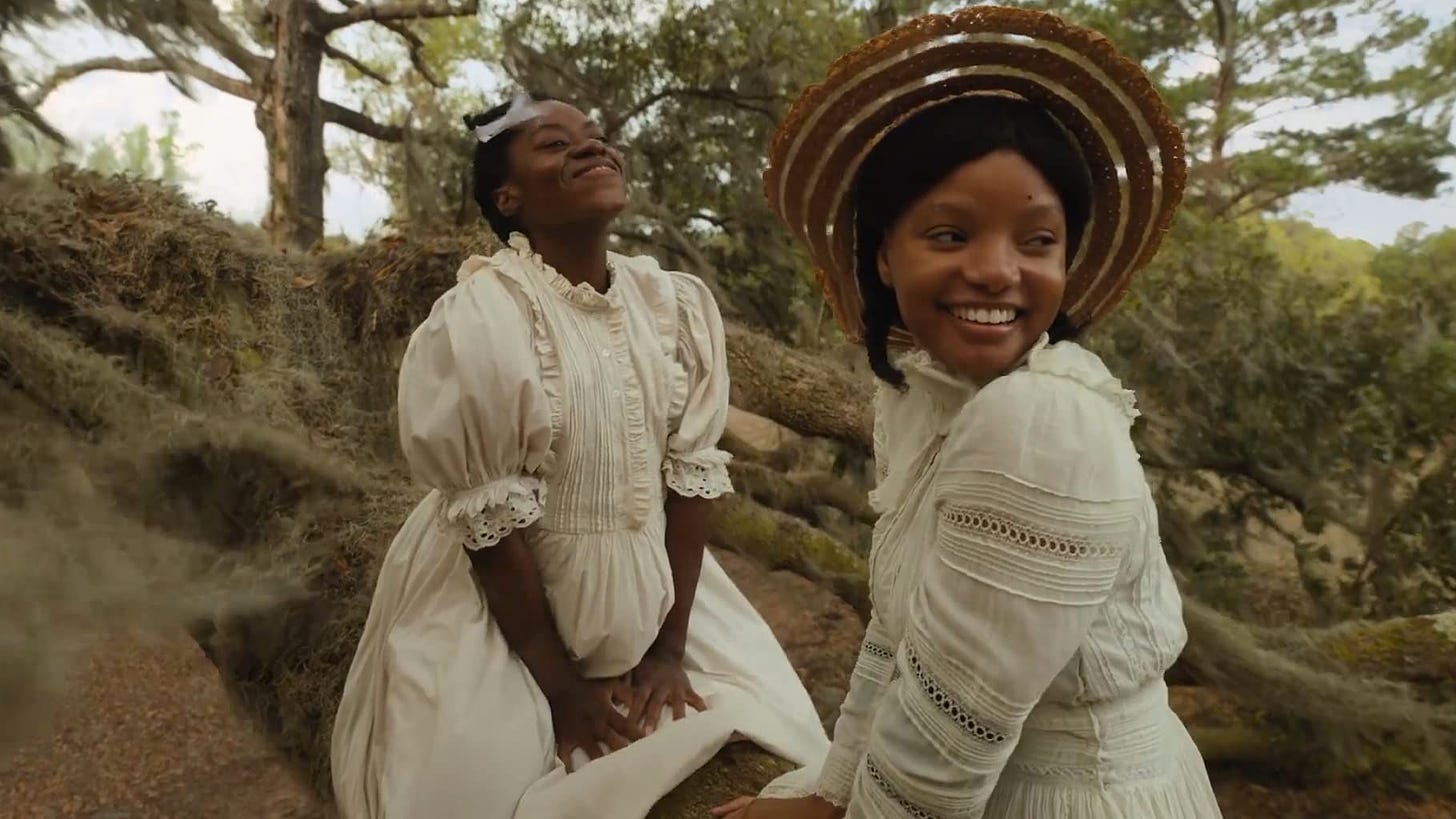
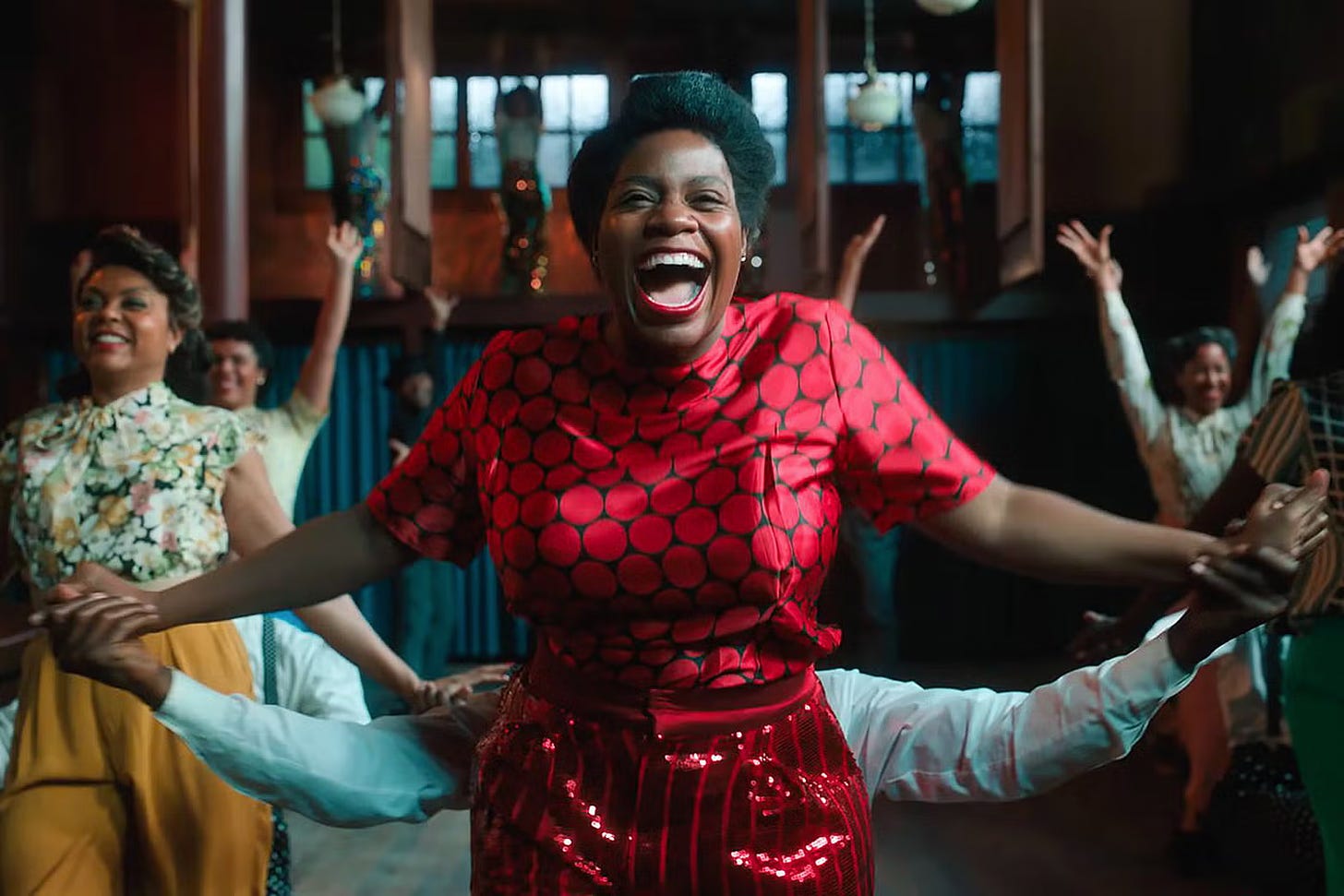
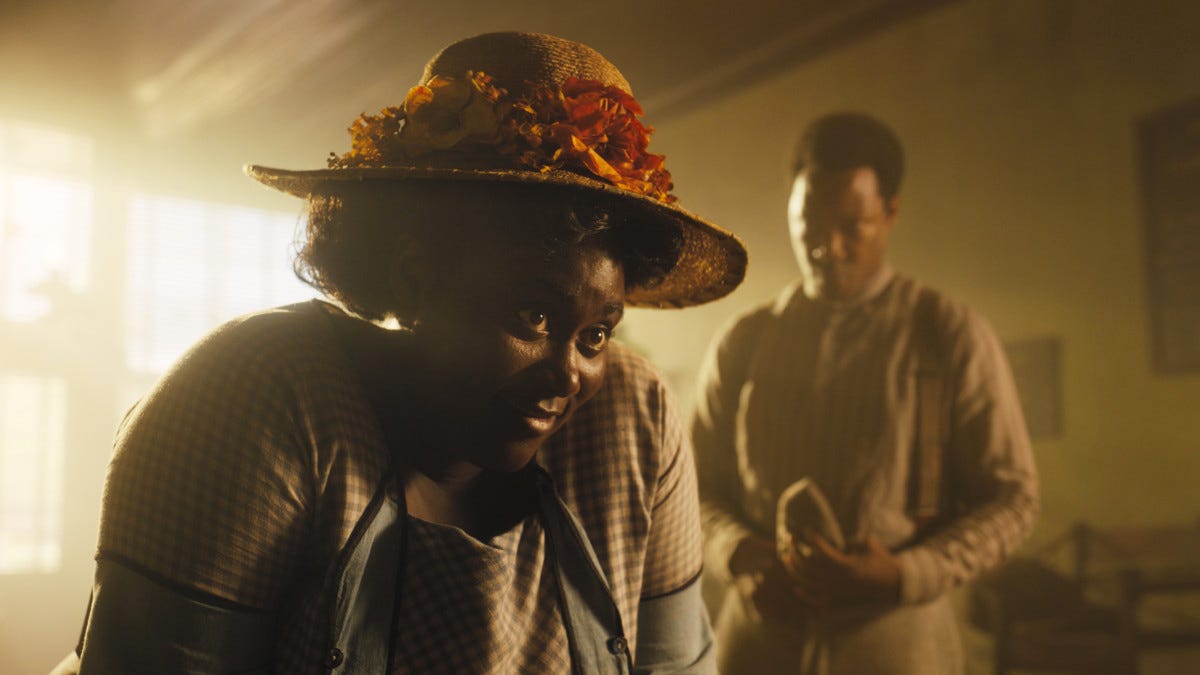
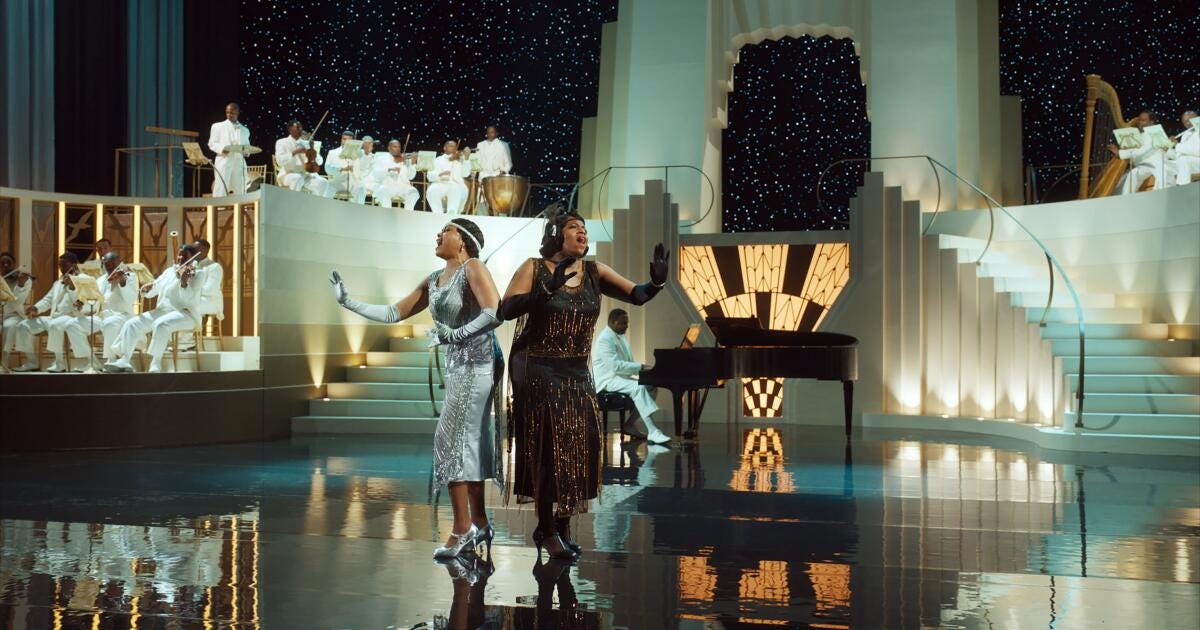
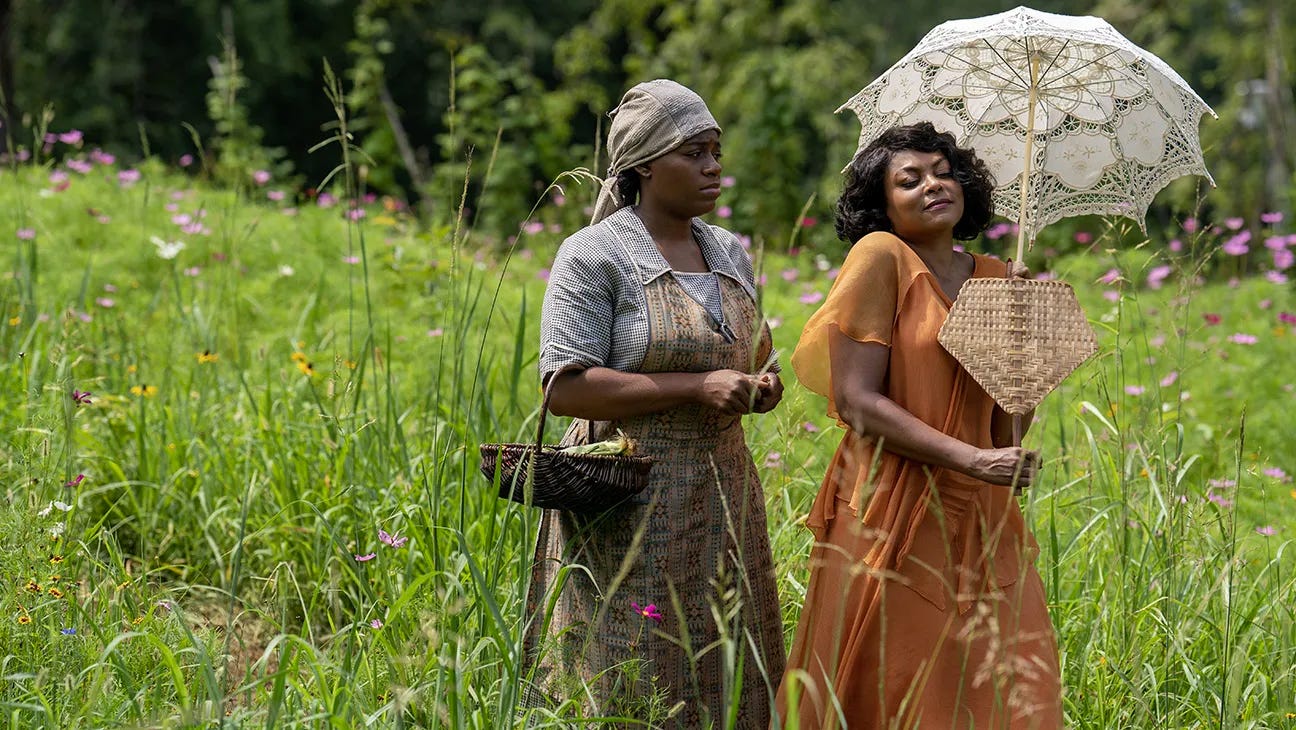
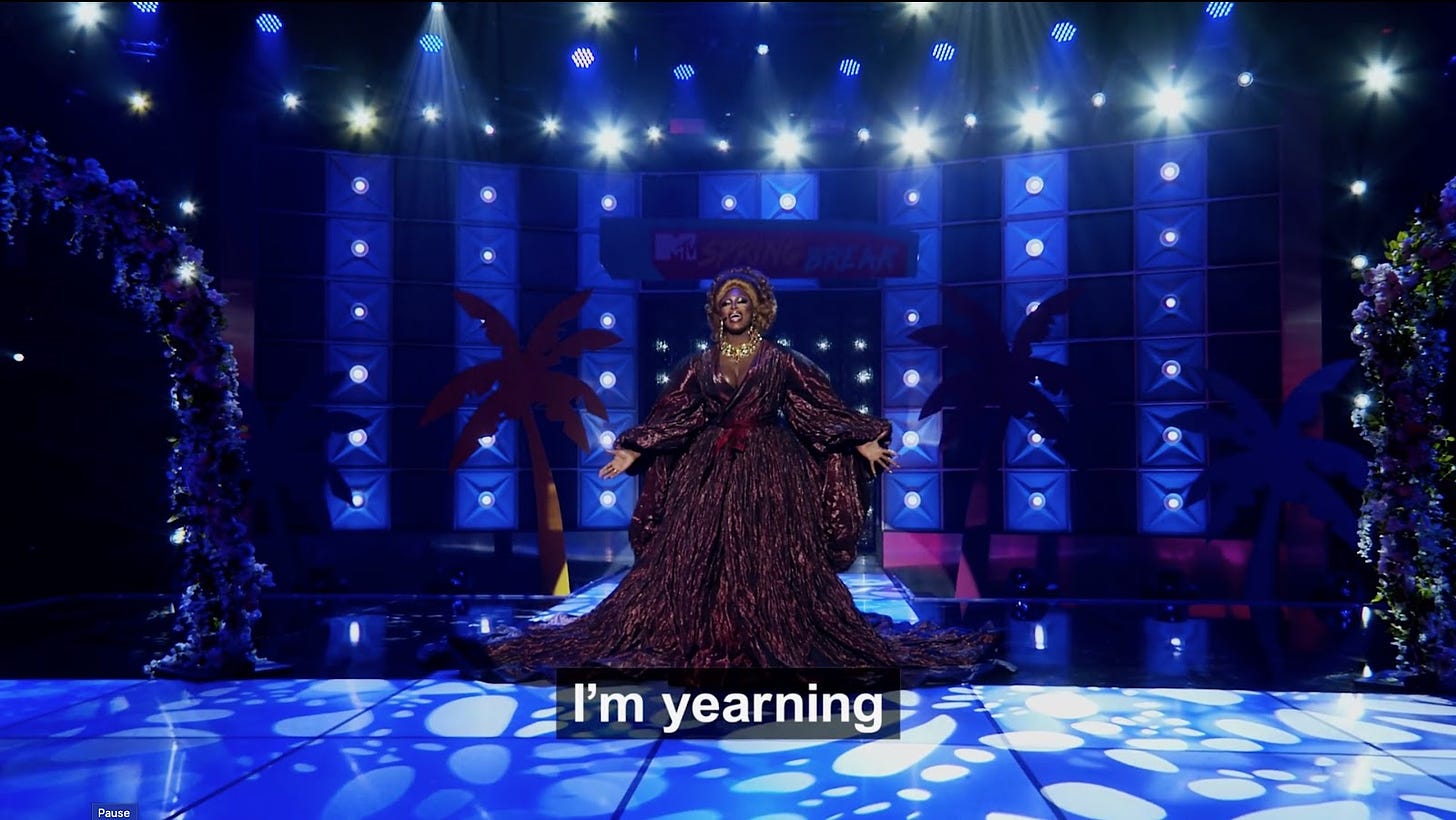

Sorry I did read this but I forgot to comment - great job!!!